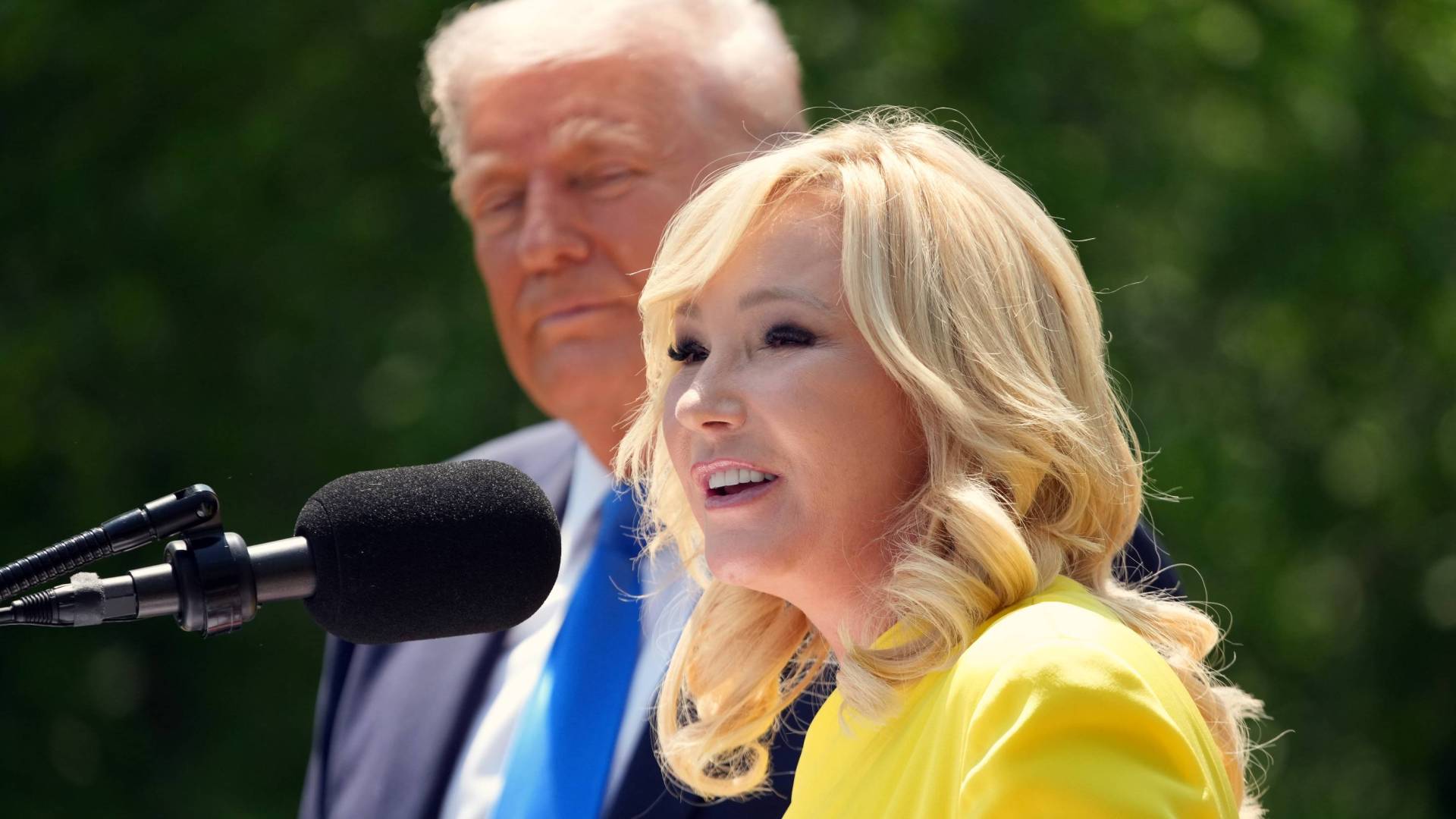On May 1, 2025, the National Day of Prayer, Paula White-Cain stood in the White House Rose Garden and called President Donald Trump “the greatest champion of faith we’ve ever had.” She then led religious leaders and Trump cabinet members in singing “Great Are You Lord” and “Amazing Grace.”
The president, seated at a desk amid the group, signed an executive order establishing his Religious Liberty Commission, with Texas lieutenant governor Dan Patrick as chair. The commission will work alongside the White House Faith Office, directed by White-Cain.
White-Cain’s life is rags to riches: hardship, struggle, faith in Christ and positive thinking, victory, wealth. She often describes herself as a “messed-up Mississippi girl” whom God saved from early years of abuse, poverty, and single motherhood.
A neighbor in her trailer park led her to Christ, then White-Cain married Randy White, a Pentecostal preacher. The newlyweds scraped together enough resources to start a church in Tampa, Florida, that eventually became Without Walls International Church. They divorced in 2007, just before a Senate Finance Committee investigation found they had spent tax-exempt donations on a lavish mansion, a private jet, and exorbitant salaries for family members.
Today, White-Cain is married to Jonathan Cain, an original member of the band Journey and pastors New Destiny Christian Center in Apopka, Florida. She preaches a prosperity gospel, and religion scholars Shayne Lee and Phillip Sinitiere called White-Cain the “‘Oprah’ of the evangelical world.” She platforms wellness experts, instructs followers on weight loss (repent and stop eating sugar), and offers beauty tips.
According to Lee and Sinitiere, White-Cain “reinvented her image with extensive plastic surgery, modish hairstyles, perfectly manicured nails, chic silk suits, fitted dresses, and a leaner size 4 figure.”
In the early 2000s, she launched her show Paula White Today, and by 2006, she appeared on a half-dozen stations including Trinity Broadcasting Network and Daystar. During that time, Donald Trump saw her on TV and invited her to a meeting at Trump Tower.
They became friends, and White-Cain went with Trump to Atlantic City, New Jersey, where she conducted Bible studies and prayer meetings with celebrities who visited the casinos. White-Cain said Trump had a born-again experience and told Religion News Service she was “one hundred percent” sure he “confesses Jesus Christ as Lord.”
White-Cain is both a logical choice to direct the White House Faith Office, given her friendship with Trump, and a surprising one, given the office’s history. It began in 2001 under George W. Bush as the White House Office of Faith-based and Community Initiatives, an outgrowth of compassionate conservatism. Its first director was policy expert John DiIulio.
During her Rose Garden speech, White-Cain said that in the first 100 days of the Trump presidency, the Faith Office has hosted dinners and held “briefing,” “listening,” and “working” sessions. It has invited more than 1,000 religious leaders to the White House, “and they are not here for ceremony [but] for collaboration—creating and crafting policy and sharing their hearts.”
Stanley Carlson-Thies, deputy director of Bush’s faith office, sees a “strong continuity” between the two offices on “key tasks,” such as “helping agencies redesign programs to become more effective by engaging with community-based organizations.”
Jim Towey stresses the differences. He led the White House faith office from 2002 to 2006 and focused it “on the needs of the poor,” he said in an email statement. “I don’t know what President Trump proposes to do with the faith office. … It does not appear to be centered on the poor and how to help them access the most effective social service programs, sacred or secular.”
Both Carlson-Thies and Towey are taking a wait-and-see approach. Towey said, “We will have to judge a tree by its fruit.” Carlson-Thies said, “I’m praying that the many clergy who come [to the White House] to pray will not simply bless the president and administration but bring a strong sense of the biblical wisdom that just governance is ‘under God’—subject to God’s intentions for government in the in-between times of the present world.”
John Fea is distinguished fellow in history at the Lumen Center in Madison, Wisconsin.














